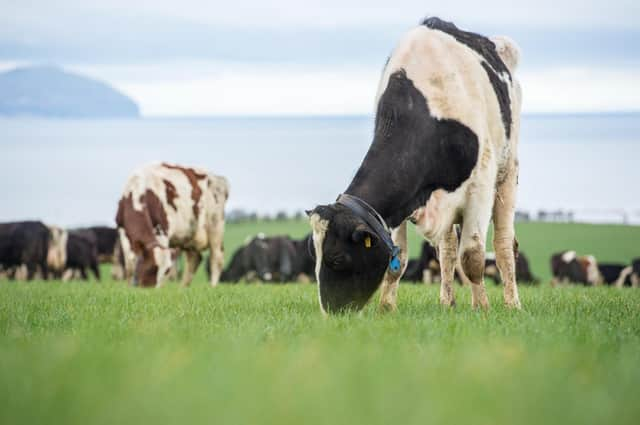As elections loom, is it better the farming minister you know?


Politicians point to ruminating livestock as being responsible for up to 10% of these nasty gases and say the equivalent of “naughty, naughty cows” but they seldom point to their polluting cars and say “naughty, naughty cars.”
These anti-cow people are aided in their animosity to livestock by vegans whose carrot crunching and Brussel sprout munching preferences along with their gas producing consequencies are seldom mentioned.
Advertisement
Hide AdAdvertisement
Hide AdThis is not some abstract issue as one of the first big subject for Scottish politicians after next week’s vote is to set out an agricultural policy for this country that will result in cutting carbon emissions. With the Cop26 conference taking place in Glasgow later this year, Scottish politicians want their ‘ducks in a row’ regarding saving the planet.
Last year, the then Farm Minister, Fergus Ewing set up farmer-led groups and tasked them with devising ways the Scottish agricultural industry could reduce its greenhouse gas emissions.
The beef sector group under the chairmanship of the redoubtable and seldom silenced former NFUS president, Jim Walker and aided by rising star Claire Simonetta handed in their group’s homework last November.
Their recommendations were based on a new support scheme aimed at making the sector more efficient through improved grassland utilization along with better nutrient management.
So far so good, it might be thought but some civil servants had other ideas. “Why not just trim the numbers of cattle we keep in Scotland?” was apparently suggested.
The problem was the suggestion was not just a ‘little trim’ but a major reduction in numbers with 200,000 head being mentioned. Fergus, the Minister, was understood to have exploded at this suggestion.
If agreed, he would have to go around the country telling beef farmers that almost half the cows gently chewing the cud in the grass fields would be heading down the road to the nearest knackery and that message would not endear him to the cows’ owners standing with their voting papers in their hands.
Since then, there has, I believe been “discussions” on the accuracy of the figures with the aforementioned Mr Walker describing the suggested reduction of the beef herd which is recognised as the major economic sector in the Scottish farming industry as a “scorched earth” policy.
Advertisement
Hide AdAdvertisement
Hide AdNothing has been decided but commenting on the spat between the civil servants and Mr Walker the then Minister, Fergus has stated his belief that farmers should decide future policy and, believe it or not, he has strong support for this point of view from farmers themselves.
Why is all this being mentioned just now?
There are a host of reasons; a number of which are dependent on the outcome of this Thursday’s election.
By coming down on the side of Scottish farmers retaining current levels of cattle against the opposite view from the top of the civil service, has the Minister painted himself into a corner?
It may be that Fergus is returned to Parliament, but he may not be given the farming portfolio. Depending on the votes cast and seats allocated, it may be that the current front running party does not get a straightforward overall majority and has to come to some sort of a deal with a smaller party in order to get its main priority which is independence, and which has no place in this particular comment piece. This sort of political horse trading is not unknown. In fact it occurred in 1999 when the first Scottish Parliament was set up and Scottish Labour entered a coalition with a smaller party. Part of the deal saw Lib Dem, Ross Finnie, handle the rural portfolio in the coalition.
So having Fergus as the next Farm Minister is not a given, even if the SNP achieve a majority, he may not be seen as a shoo-in for the farming portfolio. A politician with his experience may be needed in another branch of Government that has come under criticism in the last month or so. Think Education or Health.
It is quite possible that the farming portfolio might go to a political greenhorn. For farmers, the advice is not to count your chickens before they hatch nor your calves before they are born